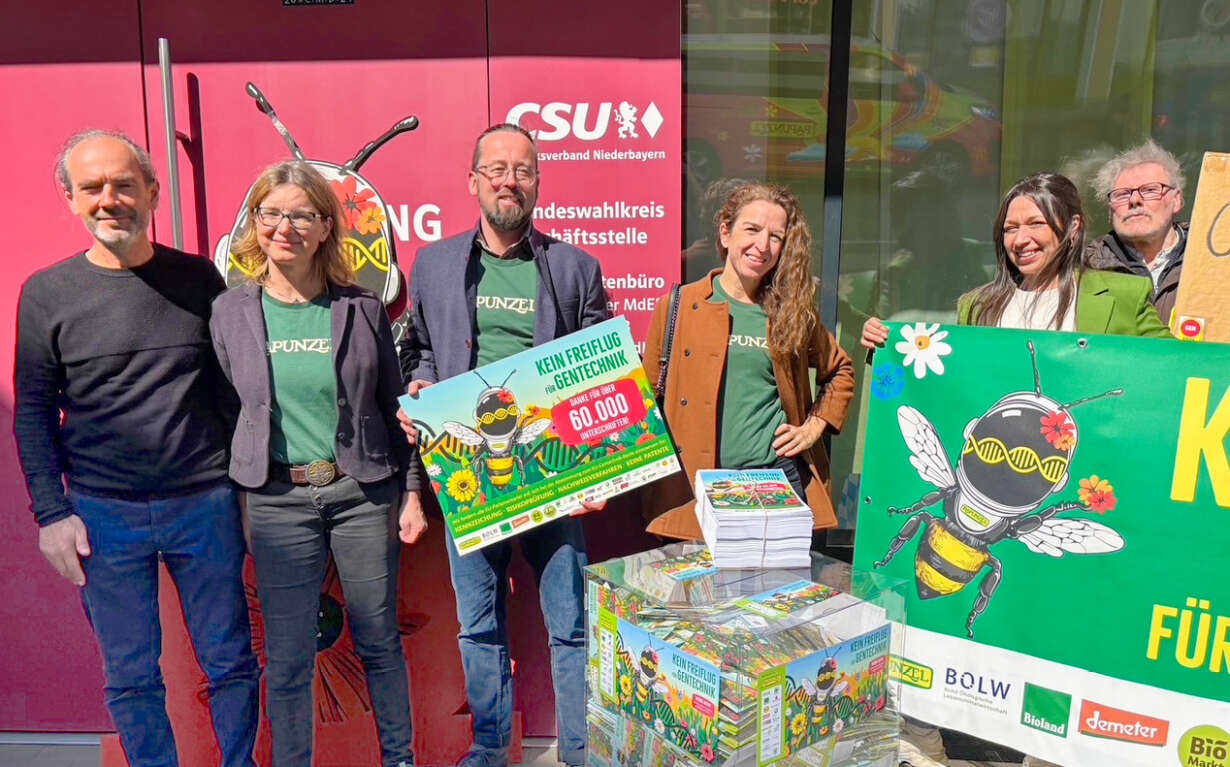The campaign “No Free Pass for Genetic Engineering,” launched by around 30 associations and organic companies, has collected 60,000 signatures against the deregulation of plants developed using New Genetic Techniques (NGT). The signatories demand consistent labeling, traceability, and risk assessment for NGT plants, as well as protective measures for GMO-free agriculture.
The postcard campaign was meant to be presented to CSU European politician Manfred Weber, who did not appear for the handover. As chairman of the EPP parliamentary group, Weber faces criticism since his party is divided on the issue of NGT labeling. While CSU representatives in the European Parliament voted against mandatory labeling, Bavarian Agriculture Minister Michaela Kaniber (CSU) explicitly supports labeling requirements. She might become the next Agricultural Minister of Germany.
In the upcoming trilogue negotiations between EU member states, the European Parliament, and the EU Commission, the final wording of the NGT regulation must be determined. The European Parliament narrowly supports comprehensive labeling and traceability, as well as largely excluding patents on NGT plants – against the wishes of the EPP group, which provides the lead negotiator.
Given this disagreement, Green MEP Martin Häusling warns that “the conservative lead negotiator in Parliament must respect the will of EU citizens.” For the organic industry, much is at stake, as emphasized by Seraphine Wilhelm, CEO of organic producer Rapunzel: “An uncontrolled release of new genetic engineering here in Europe puts the organic industry under severe pressure.”
Source: Infodienst Gentechnik
Image: ©Rapunzel Naturkost






